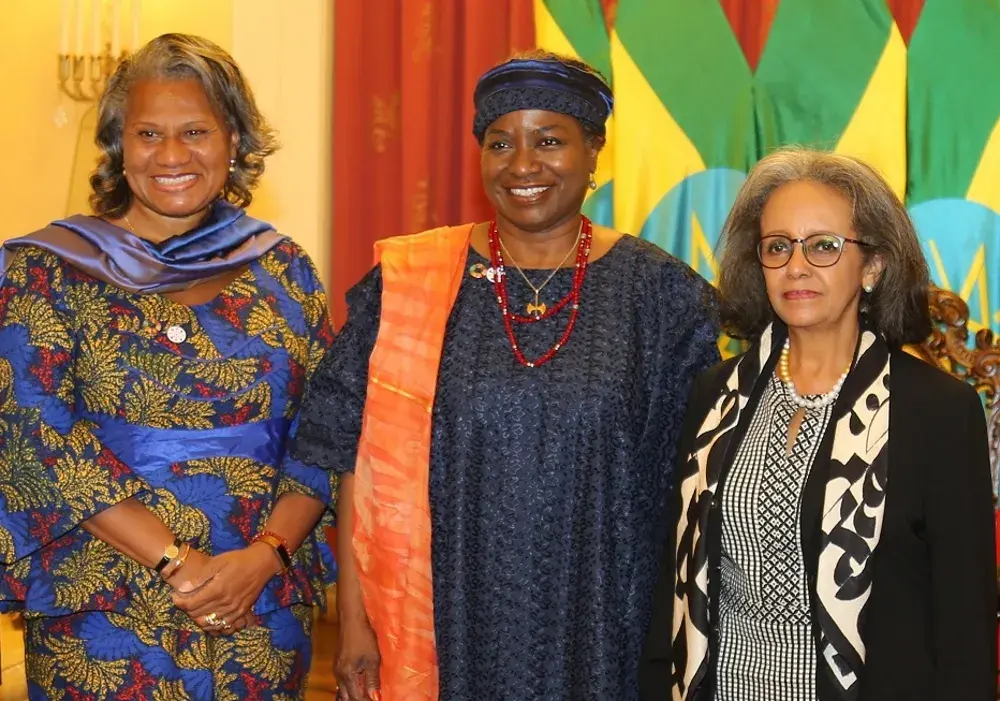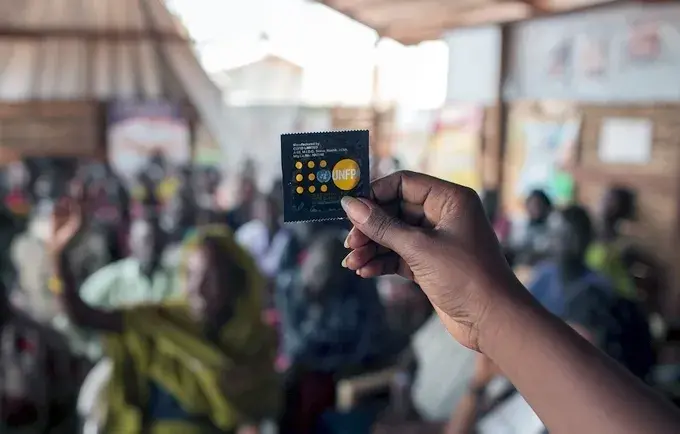"Let's act together to build a better future for our descendants! "From Monday, April 28 to 30, more than 120 traditional leaders and customary leaders will gather at the Mahajanga City Hall to revitalize their commitment to contribute to the promotion of maternal health and create a favorable environment for the Malagasy population, especially for women and youth.
The opening ceremony of the National Symposium of Leaders and Customary Leaders took place this morning in the presence of the President of the Federation of the Royal and Traditional Communities of Madagascar (FCRTM), Princess Zoendreniny Elakovelo and the Representative of the United Nations Population Fund (UNFPA) Ms. Agathe Lawson. The new Minister of Population, Welfare and the Advancement of Women, Mrs. Johasy Raharisoa Eleonore was also present. More than 120 traditional chiefs from across the country are meeting from 28 to 30 April to revitalize their commitment to contribute to the promotion of maternal health and create a favorable environment for the Malagasy population, especially for women and youth.
The Malagasy population is predominantly young. More than half of it is under 18 years of age. Sexuality and procreation are traditionally precocious on the Big Island. One out of ten adolescents under the age of 15 already has one child according to the results of Madagascar”s MDGs national monitoring survey 2012/2013. Early entry into sex can be risky as a girl who gets pregnant before reaching the age of 18 puts her life and her baby in danger. "The fight against maternal and newborn mortality is now a public health priority, a social, moral and political imperative that is part of the promotion of human rights and of women in particular, recalled Mrs. Agathe Lawson.
Madagascar, traditions and customs play an important role in a constantly changing society. Customary practices exist and govern the life of the community. Sometimes they can impede human rights, including rights to health, education and gender equality. There are also other vulnerabilities that hinder the lives of women and girls such as prostitution, sexual and domestic violence.
Traditional leaders and customary leaders are respected and heard by communities and play an important role in education, conflict resolution, and the application of customary laws. As a result, the involvement of traditional leaders in helping to remove sociocultural barriers and taboos that impair the well-being of women, men, youth and adolescents is more than necessary. Because of their credibility, traditional leaders can become effective allies by raising awareness among the most vulnerable populations about the importance of childbirth in health facilities assisted by a qualified health professional, schooling girls and the involvement of men in the use of family planning. "Women have a role in decision-making, not only within the family but also within the community or even the entire nation," said Princess Zoendreniny Elakovelo. resolutions will be taken by traditional leaders to coordinate their interventions and initiate actions for the promotion of maternal and neonatal health.




